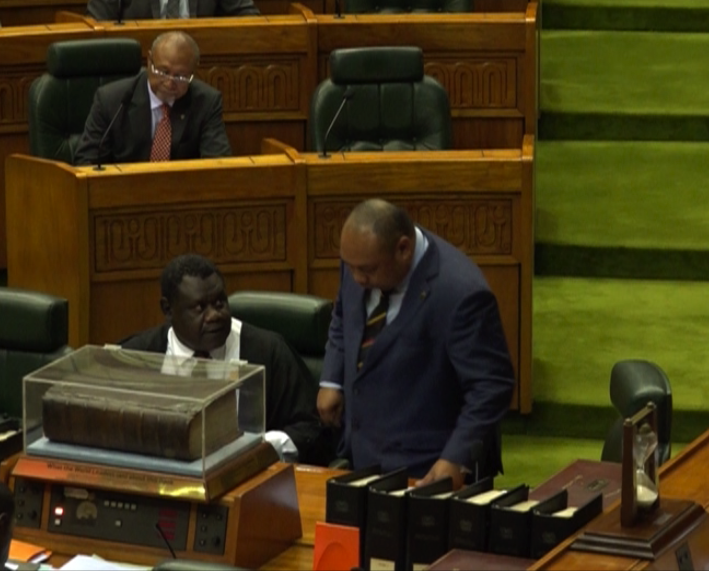The Public Health Emergency Act since its passing in Parliaments with a majority vote of 74 to 14 votes, questions are still being raised on the purpose of the Act.
Prime Minister James Marape stating the Act would be in place as the SOE came to an end, with COVID-19 Pandemic still looming globally.
Health Minister Jelta Wong also stating in Parliament before the passing of the Act that while the health system has come a long way in it preparation he believed that strong legislative powers were still required.
The Public Health Emergency Act passed in Parliament to allow this government or any other government to use in the case of a health crisis.
What’s in the Act? The Public Health Emergency Act consists of what legislative powers the Controller in the Emergency has. Firstly all rights under Qualified Rights, which includes freedom of movement, expression, gathering, information are restricted.
The Act provides the setup of a National Control Centre for a coordinated National Response, that centre will consist of technical advisory council that consist of head of government bodies.
The Controller will be given full powers to carry out the national emergency while also carrying out directions form the National Executive Council. The Act allows for the controller to have full financial control and procurement powers as the Public finance Management Act will not apply when an emergency is declared.
The Opposition finding issue with this.
The Act states that no later than 3 months a furnished acquittal of funds must be given to the health Minister and NEC.
The Act only being evoked when a health emergency occurs. As for the COVID-19, the state of emergency is expected to come to an end this week and most of the surveillance and testing for COVID-19 response will still be continued by the National Department of Health.
By Adelaide Sirox Kari, EMTV News, Port Moresby


